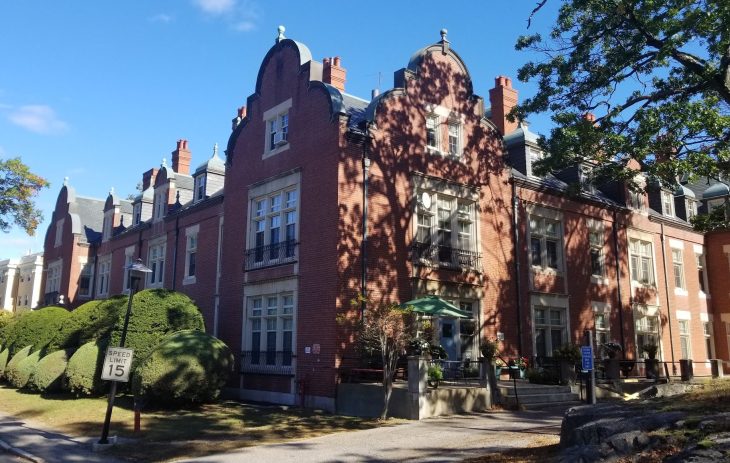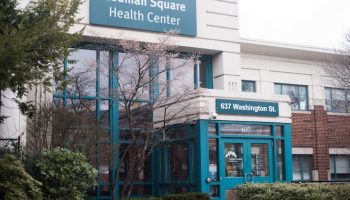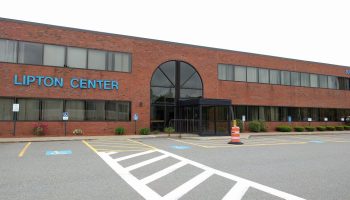About McLean Hospital Belmont Campus
McLean Hospital is a drug, alcohol, and behavioral health treatment center in Belmont, Massachusetts. The detoxification center is located on Mill Street, where they have detoxification and short term treatment services. They’ve been around since 1811, and their center retains that stately nineteenth century architectural style. It’s a blend of vintage aesthetics and modern amenities and clinical approaches.
If you’re worried about how you’ll pay for detox, the facility accepts lots of private health insurance plans. They also take Medicare and work with many managed care plans.
The detox and short term care program is for adults with substance use disorders. The program is supervised by clinicians affiliated with the Harvard Medical School whose expertise is in substance use and co-occurring disorders. Co occurring disorders are mental health issues such as bipolar disorder, anxiety, and depression.
Depending on the length, severity, and type of substances you use, detox can take a week or even months, though most people detox in about 5-7 days. It’s important that you’re honest with your physician about the types and amounts of substances you use so they can give you the safest, most comfortable detox.
Detox is an important first step when it comes to substance use recovery. By ridding your body of toxic substances, you break the physical dependence you have on drugs or alcohol. It’s hard on your body to abruptly stop taking substances, so, during detox, they’ll give you medications to help ease the withdrawal symptoms. Withdrawal symptoms are different for everyone and they vary depending on the type of substances you use. A few common withdrawal symptoms include nausea, vomiting, sweating, shaking, and cravings.
After detox, most people stay in an inpatient drug rehab program. Some outpatient programs may be a better fit if you need to meet family or work obligations.
Levels of Care
-
Inpatient
Inpatient and residential programs provide round-the-clock medical and emotional support as you live at the treatment facility. This level of care may be recommended if you have severe addictions or mental health conditions since it removes outside distractions and allows you to focus solely on therapy.
-
Outpatient
In outpatient therapy, you’ll attend therapy sessions several times each week while living at home. This is ideal if you have a strong support system and a lower risk of relapse. Outpatient treatment offers flexibility to maintain work, school or family obligations.
-
Aftercare
Aftercare programs provide ongoing support after you complete a rehab program. They may include several components to help you maintain sobriety including therapy, community support groups and relapse prevention strategies. This gives you a network of resources as you reintegrate into your daily life.
-
Dual Diagnosis
Dual diagnosis programs address substance use disorders and co-occurring mental health conditions simultaneously. This integrated approach to care improves the likelihood of long term recovery and stability by addressing the root causes of addiction.
-
Intervention
An intervention is a structured and professionally guided conversation with an individual who is struggling with addiction. During the conversation, family and friends will encourage you to seek treatment. This is often a pivotal step for those resistant to getting help.
-
Sober Living
Sober living homes provide a supportive and substance free environment for you to live in as you overcome your addiction. Residents must follow house rules and support each other's recovery journeys. Sober living fosters accountability and stability during this critical phase of recovery.
Detox Service Setting
-
Inpatient Detox
Inpatient detox occurs in a dedicated treatment facility. You’ll live there around the clock and receive intensive medical support and supervision to help manage your withdrawal symptoms. It is suitable for individuals with moderate to severe addictions as it ensures a stable detox environment.
-
Outpatient Detox
Outpatient detox gives you access to medically supervised withdrawal services while still allowing you to live at home. You’ll attend a clinic for treatment and monitoring. This flexible option is suitable for those with mild to moderate withdrawal symptoms who have strong support systems.
Programs
-
Adult (18+)
Adult programs address the substance use and life challenges specific to adults. Therapists can deliver sessions in individual, group and family settings. Services often include job support and life skills training in a structured environment.
-
Alcohol Detox
Alcohol detox programs offer medical support to help individuals withdraw safely from alcohol. Your care team may use medications to ease your symptoms and provide medical monitoring to address complications.
-
Animal Therapy
Animal therapy uses interactions with animals such as dogs or horses as part of treatment. You’ll learn to develop trust, lower your anxiety levels and regulate your emotions. This provides comfort and a sense of companionship during the recovery journey.
-
Cognitive Behavioral Therapy
Cognitive behavioral therapy focuses on changing harmful thought patterns and behaviors associated with addiction. You’ll learn healthier coping mechanisms by identifying and replacing negative thoughts. This improves your emotional resilience and decreases your relapse potential.
-
Men
Men's programs address substance use while also considering the social pressures, family roles and mental health concerns that are specific to men. You’ll learn healthy coping mechanisms as you build emotional resilience and develop communication skills.
-
Military / Veterans
Military and veteran programs offer specialized support for clients who served in the armed services. Programs focus on reintegration and healing within a structured and supportive environment that acknowledges the unique struggles of military life.
-
Opioid Detox
Opioid detox uses medications to ease severe withdrawal symptoms. It also includes medical supervision to help you manage potential complications. These services allow you to stabilize and begin a recovery plan.
-
Seniors (65+)
Senior programs address the unique needs of older adults like chronic pain, grief and isolation. Programs include peer support and medical oversight for age related health concerns. The goal is to improve quality of life and promote sober aging.
-
Women
Women's programs offer a safe and supportive space to focus on gender specific issues such as trauma, family roles and mental health conditions. Therapists tailor the sessions to address women's needs and foster empowerment in a healing and nurturing environment.
-
Young Adult (18 - 25)
Young adult programs are designed for individuals who are transitioning into adulthood. Topics of discussion typically include identity, independence and peer relationships. Providers may also offer life skills training and career support.
Payment Options
- Payment Assistance
- Medicaid
- Medicare
- Military Insurance
- Private Insurance
- Self Pay
Accreditations
-
 NAATP
NAATP
-
 Joint Commission
Joint Commission
Amenities
- Music Room
- WiFi
- Yoga Studio
Contact
115 Mill Street
Belmont, MA 02478





